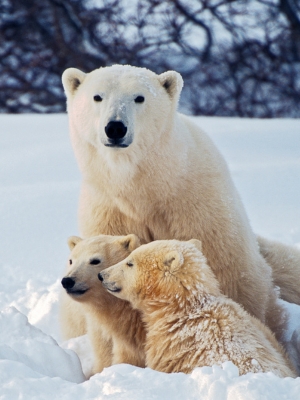On Monday, July 18th, 17-year-old female lioness Akili died at the Birmingham Zoo in Alabama after suffering extensive wounds following an attempted introduction with a male lion named Josh. Josh, originally housed at the San Antonio Zoo, was transferred to the Birmingham Zoo in April as part of the Association of Zoos and Aquariums’ (AZA) Lion Species Survival Plan (SSP). The wounds occurred within the first few minutes of their first face-to-face introduction, despite the immediate intervention of the Animal Care and Health teams (Tate, 2022).
Josh the Lion Was Acting on His Natural Instinct
The zoo introduced Akili to Josh after Akili’s original enclosure companion of 14 years, Kwanza, died in 2021. Kwanza and Akili had five cubs together in 2011. According to Hollie Colahan, the zoo’s deputy director and the coordinator of the AZA Lion SSP, “Animal introductions are always risky because wild animals can be unpredictable and we cannot control their interactions.”
According to Dr. Craig Packer, the director of the University of Minnesota Lion Research Center, while lions killing lionesses seems to be a regular occurrence in the wild, it is usually male lions killing the lionesses from neighboring prides to reduce competition for habitats. In other words, male lions will attempt to overtake a neighboring pride using fatal force to kill cubs and other males when pride territories overlap in the wild. If caught in the crosshairs, females will defend their pride to the death. Therefore, as evidenced by the unfortunate loss of Akili, transferring a lion from his “home pride” to another zoo “neighboring pride” poses grave danger to any potential new companions, no matter how fervently the SSP attempts to justify having more captive lion births in the name of “conservation.”
Zoo Captivity Creates Dangerous Situations for Animals
This unfortunate and irreversible outcome illustrates that the artificial nature of captivity not only significantly restricts or otherwise completely prevents an animal’s ability to make their own choices, but actively puts animals in situations that can also result in dire consequences, including death. The very qualities that wild animals embody that can never be fully extinguished in captivity, including unpredictability, aggression, and the fierce will to live, will always work against any human efforts to contain or control them. Therefore, it is important to note that in captivity, every quality of an animal’s being is at risk: their mental wellbeing, innate autonomy, and physical existence; even within programs like the SSP that claim to “protect” and “preserve” these threatened species.
These zoo-run programs are based on the utter negligence of wild animals’ natural instincts that keep them alive in the wild, including choosing their own mates, roaming distinct range territories, defending their families, hunting desired prey, and, importantly, being able to get away from situations, or individuals, that pose a threat. By denying wild animals these choices every day in captivity, we continue to deny them a life worth living, and expose them to life-threatening dangers that could have potentially been avoided had they not been confined within a small enclosure without the option of escape.
A Final Moment of Suffering for Akili in a Life of Unnatural and Broken Social Relations
To add to the unnatural circumstances of Akili’s life, she was removed from her mother at about two years of age; she was born in 2005 at the Cheyenne Mountain Zoo in Colorado Springs, Colorado, and subsequently moved to the Birmingham Zoo in 2007. In the wild, mothers and daughters frequently stay together for life, as female cubs typically remain in their natal pride.
You Can Help Animals like Akili and Josh
Join us in challenging the zoo industry’s claims that sentencing animals to lives void of autonomy, freedom of choice, or natural behavioral expression protects them from harm. Clearly, this is not the case. Please do not support zoos or safari parks.
Keep Wildlife in the Wild,
Devan

 Dear Reader,
Dear Reader,